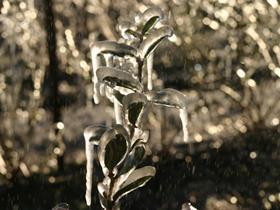
One of the UK’s leading fruit research companies has spoken of the need to better understand the science behind the winter chill effect that triggers blossoming to ensure effective fruit production in the future, as winters appear poised to shorten.
East Malling Research said that more work was needed to adapt fruit and vegetable production to the changing climate, not just in the UK, but worldwide.
The organisation said that as concentrations of greenhouse gases continue to rise, and global temperatures increase, the amount of chill the UK receives will decline further.
Despite the prolonged cold weather in the country this year, East Malling Research’s head of science, Chris Atkinson, said that winters would continue generally to become shorter and milder.
“This will impact significantly on growers,” he said.
“As the south-east’s climate fails to deliver the period of chill and dormancy required for maximising the yield of commercial perennial crops, traditional varieties that require larger amounts of chill will likely disappear or migrate north to chillier or longer winters.”
Mr Atkinson said that “forward-looking growers” needed advice on how to adapt to these new demands in order to sustain UK-based food production levels.
This, he said, may require the use of alternative cultivars with lower chill requirements or “entirely novel” replacement crops that have low chill requirements.
“UK grape production is increasing and this crop generally has a much lower chilling requirement than traditional tree fruits, particularly apples,” explained Mr Atkinson.
East Malling Research’s head of science said the industry also needed to consider that similar declines in winter chilling are likely to become apparent in other fruit producing areas around the world including those that are key to the UK reliance on imports of perennial fruit out of the UK season.
For this reason, he said the fresh produce industry needed to “step up” its research and development in this area on a global scale.
“With a greater fundamental understanding of how plants actually measure and respond to chilling we should be able to help growers overcome some of the negative consequences of warmer winters,” added Mr Atkinson.
“For example, this could include breeding programmes to develop cultivars that can thrive with less chilling and produce the high quality plants and fruits with the long-term storage capacity we need to supply UK consumers.”



